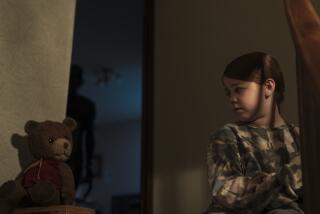Not Just for Kids: ‘Imaginary Girls’

Imaginary Girls
A Novel
Nova Ren Suma
Dutton: 348 pp., $17.99ages 14 and older
Sisterly bonds are complicated, none more so than those of teenagers whose parents are, in effect, absent. Having a barfly for a mother and fathers who fled the confines of domestic life, the half sisters at the center of the young-adult novel “Imaginary Girls” turn their relationship into a surrogate mother-daughter pairing that begins as idol worship and evolves into something even less healthy.
Unbeknown to either character, Ruby and Chloe are desperately codependent — a natural byproduct of two girls who are essentially raising themselves. As the book opens, Ruby is 19 — a gorgeous, manipulative brunet who works her womanly wiles to obtain anything and everything she wants. Fourteen-year-old Chloe is “a pencil drawing of a photocopy of a Polaroid of my sister,” she writes in a book that is swathed in sibling adoration and told from the younger sister’s point of view.
There are ominous undertones to Nova Ren Suma’s poetic young-adult debut, which takes place in upstate New York in a small town situated along a reservoir. The reservoir sits on top of the drowned town of Olive, which, almost a century earlier, was flooded to provide drinking water to New York City.
This body of water is almost its own character in the book. It’s a point of congregation for the town’s teens, who go there to drink beer and get high during the summer. It’s also the incentive for a dare, when Ruby urges Chloe to swim across it in the dead of night — a dare Chloe accepts but falls short of accomplishing when she finds a dead body in a rowboat.
The trauma inspires Chloe’s dad to resurface and relocate his daughter to Pennsylvania, but that doesn’t last long. Chloe has two other half siblings, but she isn’t as devoted to them as she is to Ruby, who is Chloe’s mentor and protector. “Blood is meaningless,” Chloe believes. “Family connections are a lot like old gum. You don’t have to keep chewing. You can always spit it out and stick it under the table.”
In Chloe’s case, the old gum is her dad and his kids, from whom Chloe runs away to be with the one person in the world she truly loves: Ruby, a young woman so beautiful she inspires police officers to tattoo their bodies with her image and other women to emulate her style.
That’s when “Imaginary Girls” enters the realm of magical realism. The dead girl in the row boat is actually alive when Chloe returns home, forcing readers to reevaluate the story and question Chloe’s reliability as a narrator. Is Chloe one of the imaginary girls referenced in the book’s title, or is it the now-alive dead girl?
The surprising twist puts readers in a position almost as precarious as Chloe’s, as they attempt to sort out what’s real and see Ruby, and the sisters’ relationship, for what it really is. With “Imaginary Girls,” Suma offers an atmospheric and creepy take on the life-and-death desperation of dysfunctional sibling love.
More to Read
The biggest entertainment stories
Get our big stories about Hollywood, film, television, music, arts, culture and more right in your inbox as soon as they publish.
You may occasionally receive promotional content from the Los Angeles Times.






